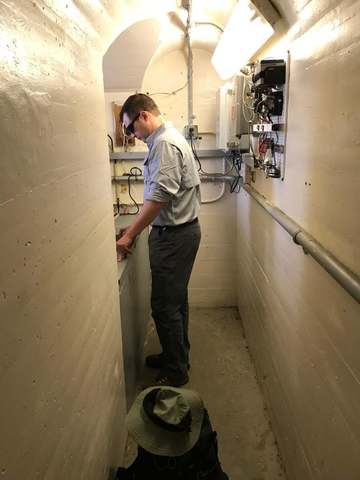Use VSPECT® to Verify: Bad Sensors or Bad Data?
by Jacqalyn Maughan | Updated: 04/06/2023 | Comments: 0

Have you ever thought your bad vibrating wire sensor measurements were caused by erratic or erroneous data? You may be surprised to learn that data issues may not be the cause. If you are using a data-acquisition system other than one of the Campbell Scientific family of VSPECT® products (CR6, CRVW3, AVW200, and VWAnalyzer), the bad measurements could be due to the weakness of the data-acquisition system.
VSPECT: The Superior Measurement Technology
At Campbell Scientific, we’ve been approached by many clients who believed their sensors were damaged and needed to be replaced. They wanted a second opinion and verification to be certain, as this could be an expensive and labor-intensive undertaking. With Campbell Scientific measurement technology, VSPECT can differentiate if a sensor is bad or if your existing data-acquisition system is being affected by induced electrical interference, which can cause erroneous or erratic data.
We recently visited a prospective client and used our handheld VWAnalyzer to test whether the issues were from the sensors or other causes. We found that in this case, it wasn’t their sensors that were bad, but the lack of measurement performance in their data-acquisition system. This customer was satisfied in knowing that their grouted piezometers and strain gauges would not require replacement, which would have incurred more than $1 million in labor costs and time.
VSPECT identifies the resonant sensor frequency amongst any electrical interference.
Critical monitoring networks require accurate and repeatable data. The patented measurement and digital signal processing algorithms in VSPECT pinpoint the vibrating wire sensor’s fundamental frequency while rejecting any electrical interference. By removing electrical interference from the measurement (caused by sources such as power lines, hydroelectric power generation, high-frequency welders, construction equipment, electric rail, etc.), both accuracy and resolution are increased.
In addition to removing electrical interference from measurements, VSPECT-enabled Campbell Scientific data-acquisition products, such as the CR6, can measure and store diagnostic data for tracking sensor performance over decades of time.
Credits: Michael Adams, Eric Schmidt, and Josh Brown of Campbell Scientific, Inc., contributed to this article.
If you have questions, please connect with us by leaving a comment below to contact our sales team and application engineers.




 Jacqalyn Maughan is the Marketing Specialist in the Infrastructure Group at Campbell Scientific, Inc. She received her bachelor's degree in Public Relations with a minor in Multimedia Development. Away from work she enjoys spending time with her family and two feline children, reading, and learning new things.
Jacqalyn Maughan is the Marketing Specialist in the Infrastructure Group at Campbell Scientific, Inc. She received her bachelor's degree in Public Relations with a minor in Multimedia Development. Away from work she enjoys spending time with her family and two feline children, reading, and learning new things.
Comments
Please log in or register to comment.